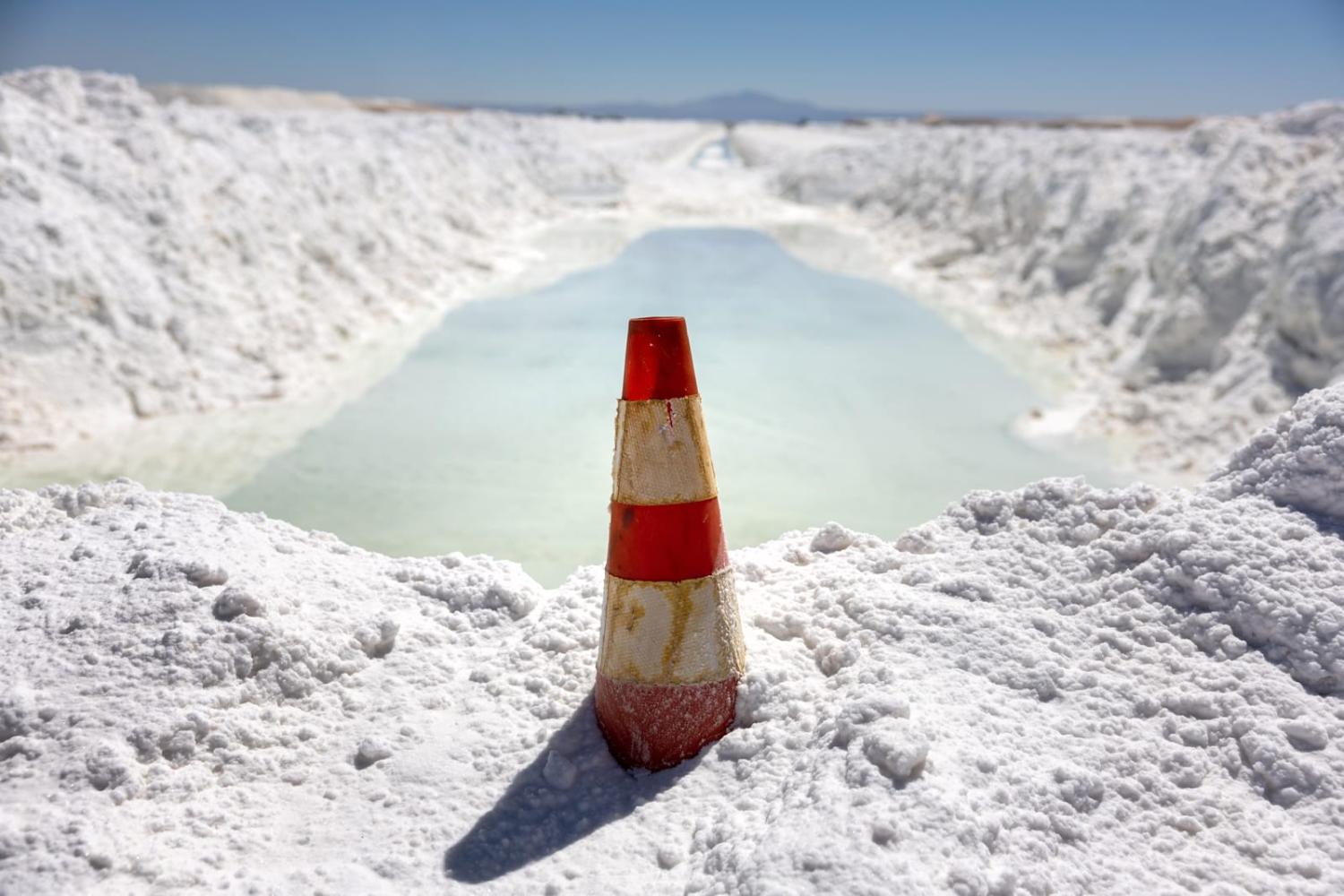Clean energy transition has emerged as a new frontier in the US-China strategic competition, broadening the scope of the ongoing “chip war” and casting global repercussions. Nations are vying for security over critical minerals essential to energy transition. A focus on stockpiling strategic mineral reserves, enhancing domestic production, and reshaping supply chains by partnering with aligned nations has seen a prioritising of strategic interests over economic efficiencies. These moves have significant geopolitical implications, shaping both global and bilateral partnerships.
Argentina, perhaps surprisingly, emerges as a pivotal player – and maybe a serious rival to Australia, too. Endowed with copious lithium reserves, Argentina faces a strategic conundrum, just as an almost maverick figure in newly-elected president Javier Milei takes the reins.
On the one hand lies the option to maintain its profitable alliance with China; on the other, the potential to align with a US-led supply chain in electric vehicles and lithium-ion battery production.
Argentina, home to the largest share of the world’s salt-lake lithium resources, 21% of the global total, enjoys relatively lower production costs. Despite this, Argentina’s lithium production, currently at 6%, trails behind leaders such as Australia (52%) and Chile (26%), primarily due to technological and capability constraints. In recent years, the country has used preferential policies such as tax cuts to attract investment, namely China. In response, Chinese firms have deepened their footprint in Argentina, and have fostered long-standing relationships with local stakeholders, backed by strategic investments in infrastructure and the transfer of green technologies.
Milei, whose presidential campaign was punctuated by radical libertarian policies and a rhetoric reminiscent of Donald Trump, has unequivocally stated his intention to pivot Argentina’s foreign policy towards the United States, distancing the nation from China. Milei’s resolve extends to Argentina’s decision not to join the BRICS bloc. Beijing’s reaction to these developments has been one of ambiguity, signalling a pragmatic stance in preserving its ties with Argentina, both as a resource-rich partner and a geopolitical ally in the Global South.
However, the prospect of Argentina’s shift is fraught with complexity, facing a series of significant challenges.
First, Chinese enterprises have been instrumental in Argentina’s lithium sector. Their multi-billion-dollar investments have been a boon to the country, spurring job creation and boosting export revenues. Crucially, about one third of Argentina’s export value comes from its lithium sales to China. A pivot away from China could have immediate economic impacts.
Second, a realignment with the United States could potentially revitalise Argentina’s staggering economy by gaining access to the North American EV market. However, it remains unclear whether the country can benefit from the US Inflation Reduction Act, which requires that a substantial portion of battery metals be sourced from the United States or its free-trade partners – a criterion Argentina does not currently meet. The IRA, is a cornerstone of the Biden administration’s strategy to bolster clean energy transition, specifically targeting supply chains of critical minerals to reduce reliance on China’s influence.
Third, Argentina’s internal political and institutional landscape is a crucial determinant in any decision to shift its lithium alliances from China. While Milei may propose certain national strategies, his actual influence within the federal government may be limited. Notably, the governors of provinces hosting lithium mines with Chinese investments might have interests and priorities that diverge from those of the national government.
Last, Argentina’s choice could have implications for other lithium-rich nations like Australia. Australia, a major partner in the US-led Minerals Security Partnership, plays a pivotal role in global lithium geopolitics. For example, to overcome US opposition to importing nickel products under the IRA, Indonesia is seeking to strengthen partnerships with Australia, which can be seen as a strategic move towards integrating into a US-led supply chain.
As the world shifts from fossil fuels to renewable energy, the competition over the critical minerals supply chain has been central in geopolitics. Energy crises exacerbated by Russia’s invasion of Ukraine has only intensified such concerns. This perspective has contributed to the rise of resource nationalism, characterised by competitive industrial policies and subsidies, as well as partnerships based on political values. This trend marks a significant shift from the West’s traditional commitment to liberal economic values and free trade.
However, clean energy transition itself carries significant economic, social and environmental costs. According to Bloomberg NEF, China’s $546 billion investment in clean energy in 2022 accounted for nearly half of the global total, almost four times the US investment. China’s huge spending contributed to its vast production capacity and almost unsurmountable cost advantages against an alternative supply chain advocated by the United States. Absent cost-effective Chinese-made batteries, even considering the $7,500 tax credit per vehicle, EVs could become more expensive, leading to delayed EV adoption in the United States.
Energy transitions have historically redrawn the geopolitical map, forging new resource interdependencies. In the race against climate change, China’s ascendancy in clean energy transition could be globally beneficial, potentially driving down costs. Argentina’s divergence from Beijing could lead to immediate economic challenges and strain its bilateral ties, as well as broader relationships within the Global South. Additionally, aligning with the United States offers no guaranteed geopolitical benefits for Argentina and may impede the global decarbonisation agenda.

